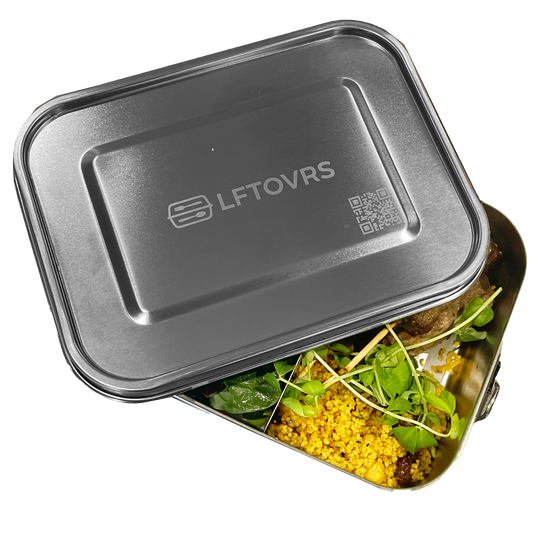
Demystifying Ultra-Processed Foods: What Are They and Why Should You Avoid Them?
Share
In recent years, the term "ultra-processed foods" has gained significant attention in the world of nutrition and health. These products dominate supermarket shelves and fast-food menus, contributing to rising rates of obesity, chronic diseases, and other health concerns. But what exactly are ultra-processed foods, and why should you be cautious about consuming them? In this blog post, we'll dive deep into the world of ultra-processed foods, exploring what they are, why they're prevalent, and the adverse effects they can have on our health.
What Are Ultra-Processed Foods?
Ultra-processed foods are a category of food products that undergo extensive processing and typically contain a long list of additives, preservatives, and artificial ingredients. These foods are designed to be convenient, long-lasting, and hyper-palatable, making them highly marketable and profitable for the food industry.
Characteristics of Ultra-Processed Foods:
To better understand what defines ultra-processed foods, let's examine their key characteristics:
-
Extensive Processing: Ultra-processed foods are made using industrial methods that often involve multiple stages of processing. These methods can include extrusion, molding, and other techniques that transform raw ingredients into the final product.
-
Highly Additive-Driven: These foods contain a wide array of additives, such as artificial flavours, colours, sweeteners, and preservatives. These additives are used to enhance taste, appearance, and shelf life.
-
Low Nutritional Value: Ultra-processed foods are typically low in essential nutrients, including vitamins, minerals, and fiber. They often lack the natural benefits found in whole or minimally processed foods.
-
Calorie-Dense: Many ultra-processed foods are high in calories, often due to added sugars and unhealthy fats. They can contribute to weight gain and obesity.
-
Hyper-Palatable: These foods are engineered to be incredibly tasty, making it easy to over-consume them. The combination of high levels of salt, sugar, and unhealthy fats triggers pleasure centres in the brain, leading to cravings and overeating.
Examples of Ultra-Processed Foods:
Ultra-processed foods come in a variety of forms, and you may encounter them throughout your daily life. Some common examples include:
- Sugary breakfast cereals
- Fast food items (burgers, fries, soft drinks)
- Packaged snacks (chips, cookies, candy)
- Sugary beverages (sodas, energy drinks)
- Pre-packaged microwave meals
- Processed deli meats and sausages
- Instant soups and noodles
- Most items in the candy aisle
- Many frozen and shelf-stable meals
- Commercially baked goods (cakes, pastries)
Why Are Ultra-Processed Foods So Prevalent?
Understanding the ubiquity of ultra-processed foods is essential for comprehending their impact on our diets and overall health. Several factors contribute to their prevalence:
-
Convenience: Ultra-processed foods are designed for quick and effortless consumption. Their long shelf life and minimal preparation requirements cater to our busy modern lifestyles.
-
Affordability: Many ultra-processed foods are cost-effective, making them an attractive option for individuals and families on tight budgets.
-
Heavy Marketing: The food industry invests heavily in marketing and advertising these products, making them seem appealing and desirable through branding and advertising campaigns.
-
Palatability: These foods are formulated to be delicious, often by manipulating the levels of sugar, salt, and unhealthy fats. This makes them highly crave-able.
-
Long Shelf Life: Ultra-processed foods are designed to last, making them suitable for mass production, distribution, and global markets.
-
Globalisation: The globalisation of food supply chains has made it easier for processed and ultra-processed foods to be distributed worldwide.
The Health Impact of Ultra-Processed Foods:
The consumption of ultra-processed foods has been linked to various health problems. Let's explore some of the major health impacts associated with their intake:
-
Weight Gain and Obesity: Due to their high calorie density and hyper-palatability, ultra-processed foods can lead to overconsumption and weight gain, increasing the risk of obesity.
-
Chronic Diseases: Regular consumption of these foods is associated with a higher risk of developing chronic conditions such as heart disease, diabetes, and hypertension.
-
Nutrient Deficiencies: Ultra-processed foods are often low in essential nutrients, meaning that individuals who rely on them may suffer from nutrient deficiencies, even when consuming an adequate number of calories.
-
Digestive Issues: The high content of additives, preservatives, and artificial ingredients can lead to digestive problems in some individuals, such as irritable bowel syndrome (IBS) and food sensitivities.
-
Mood and Mental Health: Some studies have suggested a connection between ultra-processed foods and mood disorders, including depression and anxiety.
-
Addictive Behaviour: The combination of sugar, salt, and unhealthy fats in ultra-processed foods can lead to addictive eating behaviours, making it challenging to break free from unhealthy eating patterns.
Why Should You Avoid Ultra-Processed Foods?
Avoiding or significantly reducing the consumption of ultra-processed foods is a critical step in promoting better health and overall well-being. Here's why you should consider making this change:
-
Improved Nutrition: By avoiding these products, you can ensure that you're getting more essential nutrients in your diet, which is vital for maintaining good health.
-
Weight Management: Reducing the intake of calorie-dense, hyper-palatable foods can help with weight management and the prevention of obesity.
-
Lower Disease Risk: A diet rich in whole and minimally processed foods is associated with a reduced risk of chronic diseases, such as heart disease and diabetes.
-
Enhanced Mental Well-being: Consuming a balanced diet can positively affect your mood and mental health, potentially reducing the risk of depression and anxiety.
-
Sustainability: Ultra-processed foods often involve excessive packaging and contribute to environmental waste. A diet centred on whole foods is more sustainable and eco-friendly.
Practical Tips for Avoiding Ultra-Processed Foods:
Reducing or eliminating ultra-processed foods from your diet may seem challenging, but it's entirely feasible with the right strategies:
-
Read Labels: Check the ingredient list of packaged foods. If it contains a long list of unrecognisable or artificial ingredients, it's likely an ultra-processed product.
-
Cook at Home: Preparing your meals from scratch allows you to control the ingredients and minimise the use of processed foods.
-
Shop the Perimeter: In most supermarkets, whole foods like fruits, vegetables, lean meats, and dairy products are found around the perimeter. Concentrate your shopping in these areas.
-
Limit Fast Food: Reduce your consumption of fast food and opt for healthier choices when dining out.
-
Educate Yourself: Understanding food labels, nutrition, and cooking techniques can empower you to make better food choices.
-
Gradual Transition: If you're used to a diet high in ultra-processed foods, consider gradually phasing them out to avoid overwhelming changes.
Conclusion
Ultra-processed foods are a major player in the modern food industry, contributing to a host of health problems and environmental issues. By understanding what defines ultra-processed foods and the reasons behind their prevalence, you can make informed choices to reduce their presence in your diet. Prioritising whole and minimally processed foods can lead to better health, well-being, and sustainability, ultimately improving your quality of life and the world we live in.







